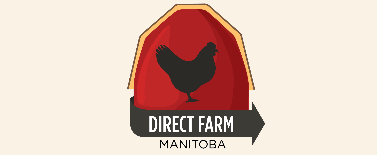Tuesday
Mar292016
Environmental Justice
Posted on  Tuesday, March 29, 2016 at 2:21PM
Tuesday, March 29, 2016 at 2:21PM
 Tuesday, March 29, 2016 at 2:21PM
Tuesday, March 29, 2016 at 2:21PM
By Chris Randall
We are frequently reassured that we live in a fair society, but the truth is somewhat different. Many of those who have failed to reap the benefits of modern industrial development are also the ones who have been most disadvantaged by the increased use of natural resources and pollution of land, air and water. This is not simply a case of the 1% taking from the 99% but the imposition of an additional burden that has effects such as reduced health and lower life expectancy.
In times past, we could argue that governments and industry were not aware of the impacts of the industrial development. Many communities were aware of the impact of resource extraction and processing upon their health and that of the surrounding environment, reluctantly trading the risk of sickness for an opportunity to escape from poverty. The shadow of unemployment still hangs over many communities in Canada, where reduced standards of environmental protection are accepted in return for guaranteed investment in poorly performing industry. For many communities, the collapse of the resource economy will make it even harder to impose regulations used in many other parts of the developed world.
Even worse off are those who, despite never receiving any income from development, are affected by emissions and waste that in some cases has an impact upon air and water that will last for tens, if not hundreds of years to come. In Canada, First Nations have probably been most affected by this, often because of their historic reliance on wild foods that over time have become contaminated due to poor environmental regulations. Other low-income groups have also been impacted by their lack of economic resources and minimal political power. They often have limited choice of where to live, so often find they forced into areas close to busy roads or heavy industry where harmful levels of toxic metals pollute the dust that fills the air. Their voices are often unheard because voter turn-out is lower for low-income groups. Politicians often ignore them or consider these communities expendable; preferentially choosing them for road development or polluting industry because their opposition is less organized or because it's cheaper to demolish and replace low-cost housing than the homes of middle-class voters.
When toxic products are exported overseas choices are even simpler, jobs at home but no worries about the subsequent impacts. This may have been what went through the minds of the Canadian government when it sought to open a new asbestos mine to ship a product banned in Canada to a country where it would inevitably cause sickness and death. All this has changed with greenhouse gases of course, the effects of Canadian oil and gas will be felt all across the world, wherever it is burned. It is likely though that the poorest countries will suffer the greatest impacts of climate change.
I’m fortunate that I have never been compelled to take a job in an industry producing toxic waste so that I can feed my family. My actions each day do however result in environmental harms that disadvantage some groups more than others. I can reduce my impact by making conscious choices, by being aware of where the resources that make my life more comfortable come from and how they are produced. But more than anything I can let politicians know that I support legislation that tightens environmental regulation and seeks to remove any environmental injustice.



Reader Comments